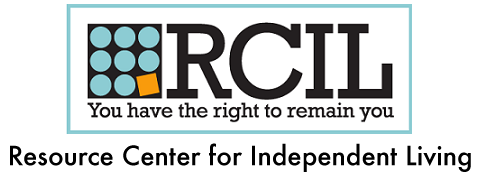Four tips for employers that make a big difference for employees
Employers that look at the treatment of mental health with the same urgency as physical health create a culture of openness and support for their employees. Feeling overwhelmed, anxious or irritable, depressed, unable to focus, having panic attacks and/or frequent headaches can interfere with our personal and professional roles (Centers for Disease Control and Prevention, 2018). With 8 in 10 adult Americans reporting the pandemic as a significant source of stress in their lives, sensitivity is key to reducing absenteeism, job turn-over, and poor performance (Aarons-Mele, 2018).
The lived experience of disability including mental health disability, is unique to each individual and can vary greatly amongst individuals who share the same diagnosis. Despite passage of the Americans with Disabilities Act (ADA) over 30 years ago prohibiting discrimination based on disability, the stigma associated with mental illness remains powerful. This is illustrated by recent surveys showing that 63% of employees that have a mental illness have not disclosed it to their employer (American Heart Association CEO Roundtable Center for Workplace Health, 03-25-2019). Supportive, rather than punitive action or reaction, provides the flexibility workers need and promotes a culture of wellness. When employer-sponsored wellness benefits, trainings, and other supports are offered to all employees, everyone benefits (American Psychological Association, 2020).
Mental health has been an issue in the workplace long before SARS-CoV-2 coronavirus transmission caused the spread of COVID-19 to pandemic levels, however it has helped focus attention on the mind-body connection and how damaging unrelenting stress can be on physical health. Acknowledging that more workers may be struggling with financial strain, caring for ill parents or sick kids, schooling children at home, or going through divorce or death, means that employer-sponsored interventions go a long way in helping workers navigate through heightened periods of stress (Kohll, 2020) (Krol, Greenwood, 2020).
Here are 4 ways that businesses are creating enhanced work settings that prioritize mental health; the type of work cultures where employees want to be and want to stay:
- Manager training – Supervisors that understand the signs of emotional distress and who can provide meaningful support are essential. Research suggests that the ability to be open and authentic at work results in better performance and engagement (Van den Bosch, 2014). Staff coming in late more frequently, calling out sick more than usual, or not meeting deadlines are all signs of a typically high-performing employee whose coping capacity has diminished.
- Leadership – Managers need to check-in frequently with staff to see how things are going. Reminding staff to take breaks, walk on their lunch or to take time off to relax shows understanding and concern for well-being. By offering additional opportunities to be open and frank about stressors they and their families may be facing, management has additional opportunities to address mental health problems early on and provide needed support and referral for help.
- Employee Assistance Program (EAP) – These offer free and confidential assessments, short-term counseling, referrals for long-term counseling and follow-up supports to employees struggling with personal and/or work-related issues. Many EAPs assist organizations in preventing and coping with workplace trauma or violence, addressing issues affecting mental and emotional well-being (including alcohol and substance abuse, stress, grief, and family problems) and work in conjunction with managers to address staff and organizational challenges.
- Prioritizing Well-Being – Businesses expend additional funds for employees that get sick and require more medical treatment. Mental health resources and wellness services should be built into benefits plan(s) if they are not already. Educating and supporting employees through unusual and difficult times that up-end routines and expectations, means coming out of it stronger and more capable as an organization.
Contact LIFE at RCIL to learn about programs and services available to individuals with physical, sensory, cognitive and mental disabilities. Call 800.627.2981 or visit rcil.com.
